“You bunch of mad, relentless, beautiful people really went and did it,” gushed Yoru-hime. “No more asterisks, no more legal or moral ambiguities hanging over our heads. Let it be shouted far and wide: City of Heroes lives again.”
On the day that the fan-run Homecoming server officially became the future of the resurrected City of Heroes, one player professed to have something in their eye. Another was so excited they felt dizzy. Some reminisced about the moment City of Heroes was first shut down over a decade ago, posting videos and testimonies. “I was at the sunset in front of Atlas Park City Hall with my torch! I actually cried at that point,” wrote mnbeave. “Now, time to arrest some baddies!”
For many this MMO was ‘one of the only places they felt comfortable being themselves’
Homecoming devs
The celebration on the Homecoming forums this January were a long-awaited catharsis—an outpouring of relief and a bonfire of painful memories many had been too wary to let go of. City of Heroes was a remarkable MMO: a decade and a half before The Avengers came to Fortnite, it was the first game to deliver on the fantasy of the superhero team-up. More than that, it was a landmark in online self-expression—boasting a powerful character creator in which you shaped a unique look and costume for your alter ego, right down to the mask that hid your real-world identity.
In today’s gaming world of purchasable skins and social media personas we take that sort of individualism for granted. But for many this MMO was “one of the only places they felt comfortable being themselves,” says the team behind community revival City of Heroes: Homecoming. “A lot of us grew up with it, and losing it in 2012 was quite literally us losing a part of our childhoods.”
The shutdown of City of Heroes was met with in-game protests and petitions, but neither could halt the bulldozers. So the community went underground, like the outlawed supes of The Incredibles. In one notorious instance, a fully-functioning City of Heroes server was kept running in private for six years—its players sworn to secrecy, until a YouTuber leaked its existence to the dismayed fans who had been left out. The colourful spy thriller twist: the server was named SCORE, or Secret Cabal Of Reverse Engineers.
Such lengths are extreme, but understandable. Revival efforts for MMOs have forever been plagued by cease and desist orders, and where community servers do operate in public their players typically live in fear of a sudden publisher slapdown—a second loss to compound the trauma of that initial closure.
City of Heroes: Homecoming, a fan initiative formed in the aftermath of SCORE’s reveal, was different from the start. Its team was aware of rare precedents like Project 1999, the EverQuest private server which in 2015 was officially sanctioned by the game’s publisher. Instead of running dark, the Homecoming team dared to be hopeful.
“We were in contact with [City of Heroes publisher] NCSoft from day one in pursuit of having a friendly, stable, and long-term version of the game for everyone to enjoy,” the Homecoming team says. “We believed that working with NCSoft was the only way to make this possible.” The team had some connections with the right people at the publisher, but they were still very nervous. “Even though we believed this was the best course of action for keeping the game alive, we knew it was far from a sure thing.”
NCSoft, too, had its reservations. “We were initially skeptical about their proposal,” a spokesperson told PC Gamer. “To our knowledge, a AAA publisher/developer like NC West had never undertaken a non-commercial license of a sunset game. Ostensibly, such an undertaking would be too resource-intensive and risky to justify without benefiting a meaningful number of a game’s fans.”

Yet NCSoft wasn’t blind to the unusual fervour of City of Heroes veterans in the wake of the game’s shutdown. “This support created unique conditions in which evaluating Homecoming’s proposal about working together as a serious venture was not dismissed.”
Heroic efforts
It’s not unlike a traditional developer-publisher relationship—just without the pressures of, y’know, hitting deadlines or needing to make any money
Homecoming dev team
It helped that the Homecoming team consciously held itself to high professional standards. It was transparent and diligent, taking its technical and security infrastructure seriously and running a player support and moderation team. In short, the Homecoming team was designed from the outset to be easy to work with. “Our aim was to run the game in a way that would instill confidence in our ability to keep things going long-term,” the Homecoming team says. “All of this definitely helped lay the groundwork for the license agreement.”
NCSoft appreciated the Homecoming leadership’s familiarity with City of Heroes’ lore and game operation; its dedicated staff, sophistication, and vision of where to take the server next. “From there we needed to subject Homecoming to meaningful guardrails in its operation of City of Heroes,” NCSoft says. “And take steps to confirm that, as a practical matter, Homecoming was likely to abide by all guardrails we imposed.”
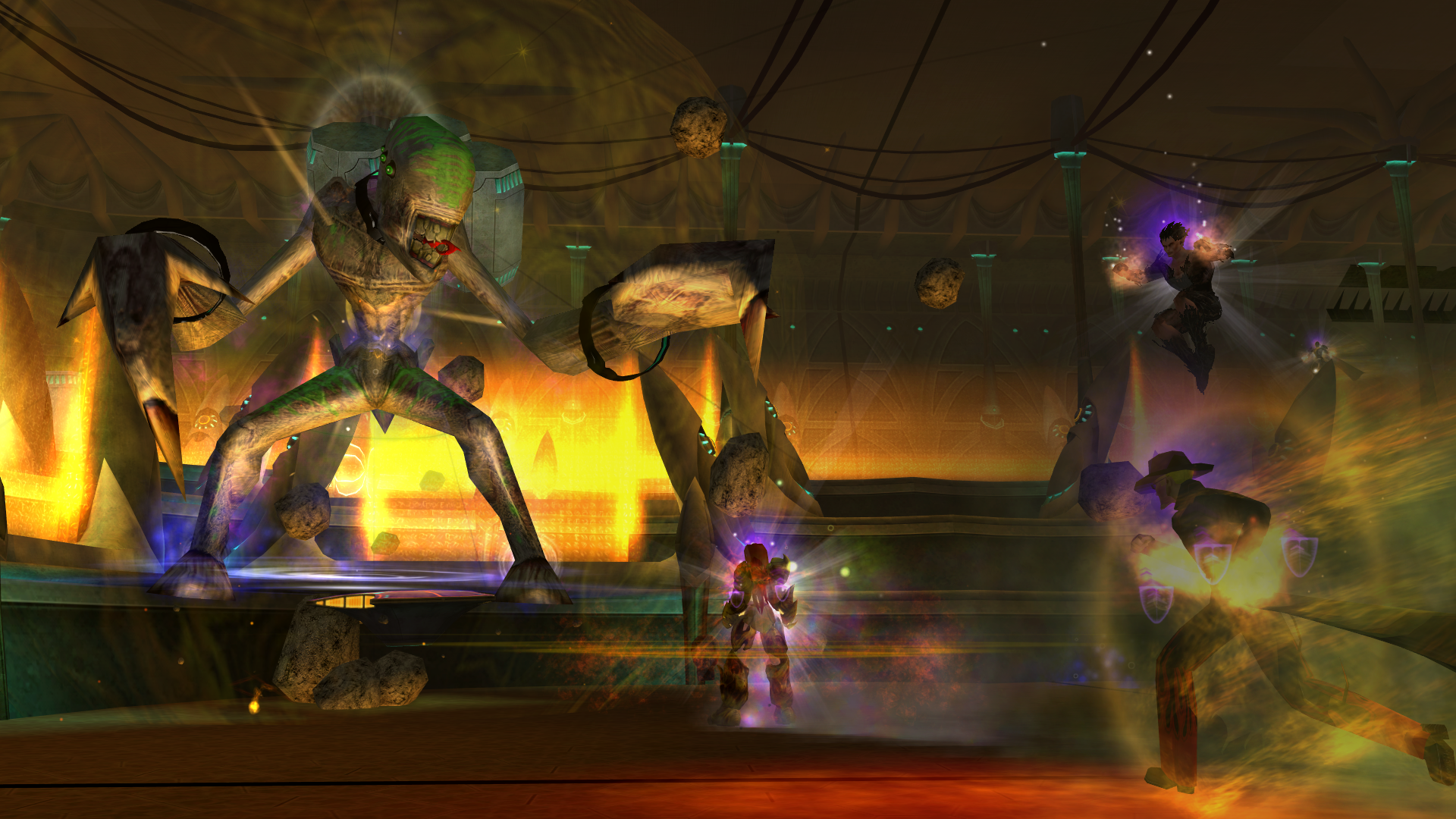
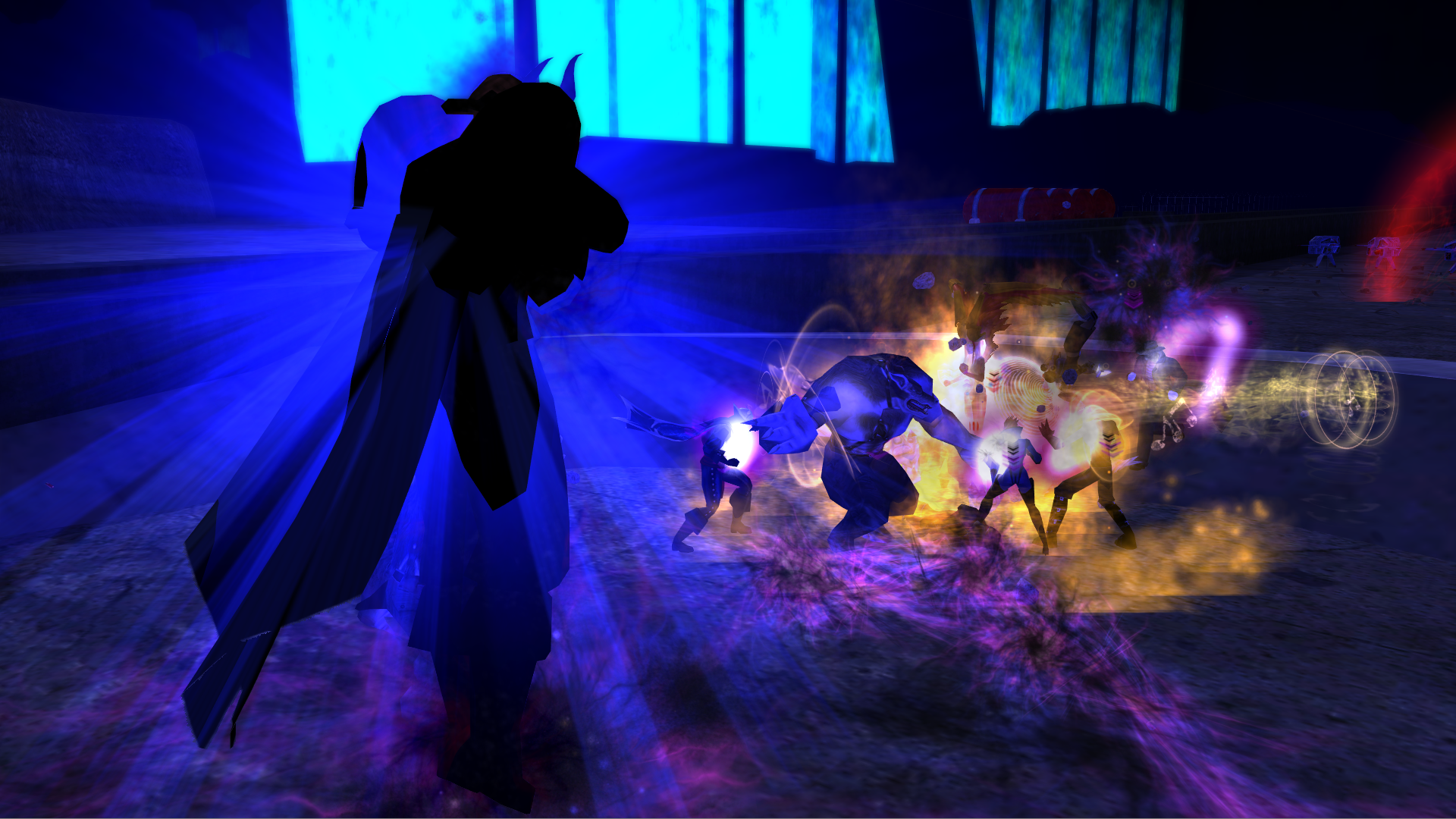
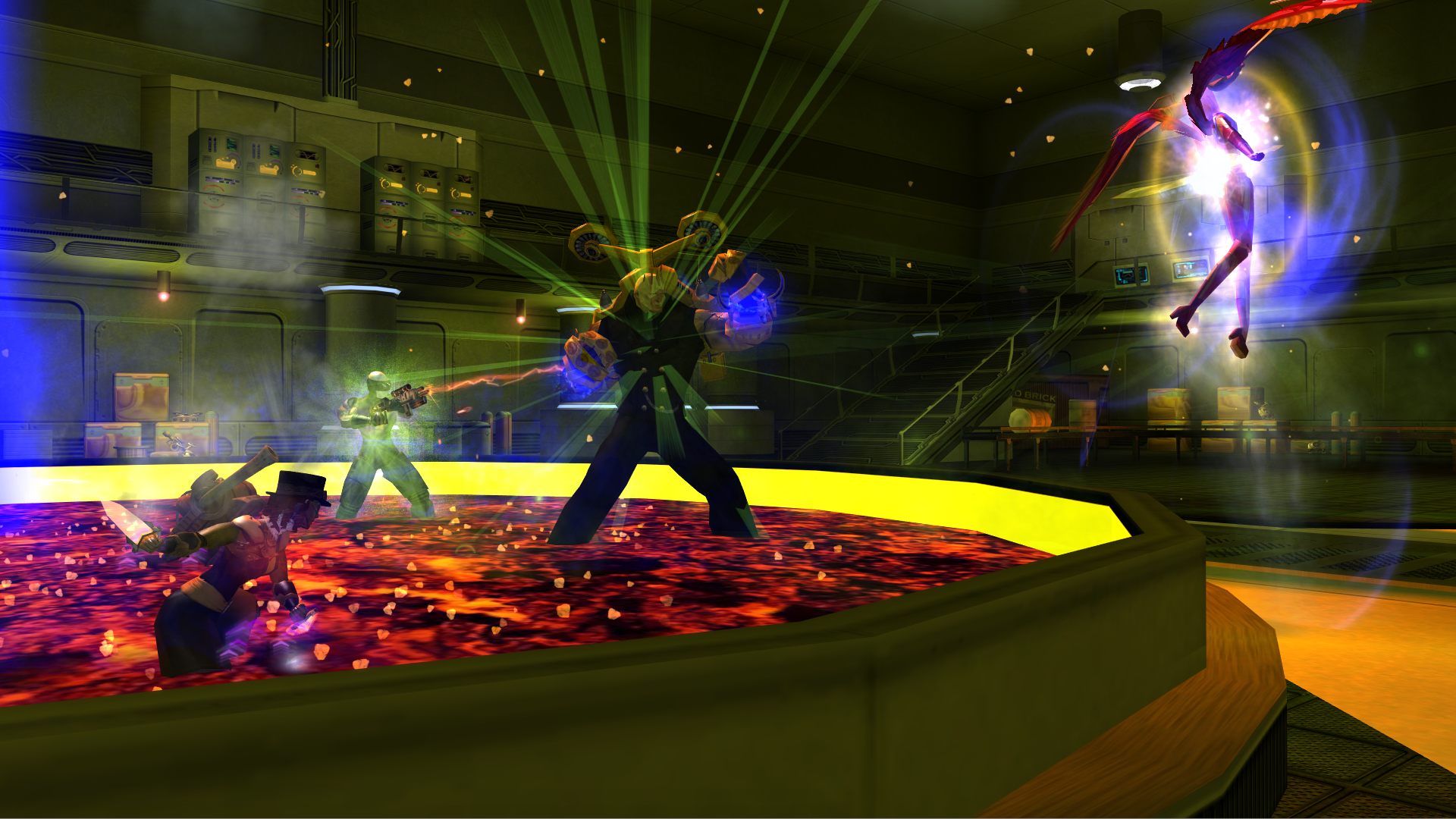
Many back-and-forth conversations, “tire-kicking sessions” and contract drafts followed. Whatever guardrails the Homecoming team agreed to, they’re not telling—perhaps as a result of that professionalism that has gotten them this far. In the end, NCSoft was convinced. “Only once we believed they would be capable stewards of the City of Heroes IP did we begin exploring a license agreement,” the publisher says.
That agreement will now “keep Homecoming’s independent server running as a sanctioned, legitimate City of Heroes option for the game’s loyal fanbase.” The deal was announced in January of this year, to much rejoicing. “Having our plan, nearly five years in the making, bear fruit was cause for immense celebration for us and the entire community,” the Homecoming team says.
It’s an extraordinary arrangement that provides a positive example for other MMO owners to follow—a way to lift up the lost communities that once adored their games and have drifted ever since. Homecoming’s server costs continue to be funded by donations, which open up each month and tend to meet their targets in a matter of hours.
“Before the license happened, we’d been running Homecoming independently for nearly five years—with oversight, of course,” the Homecoming team says. “There was no real benefit for anyone in changing that. Approval, support, and guidance is what we needed, and that’s what we’ve got, and are very thankful for.” Full-on integration into NCSoft’s operations would, the Homecoming team suggests, probably have been counterproductive for all involved.
City of tomorrow
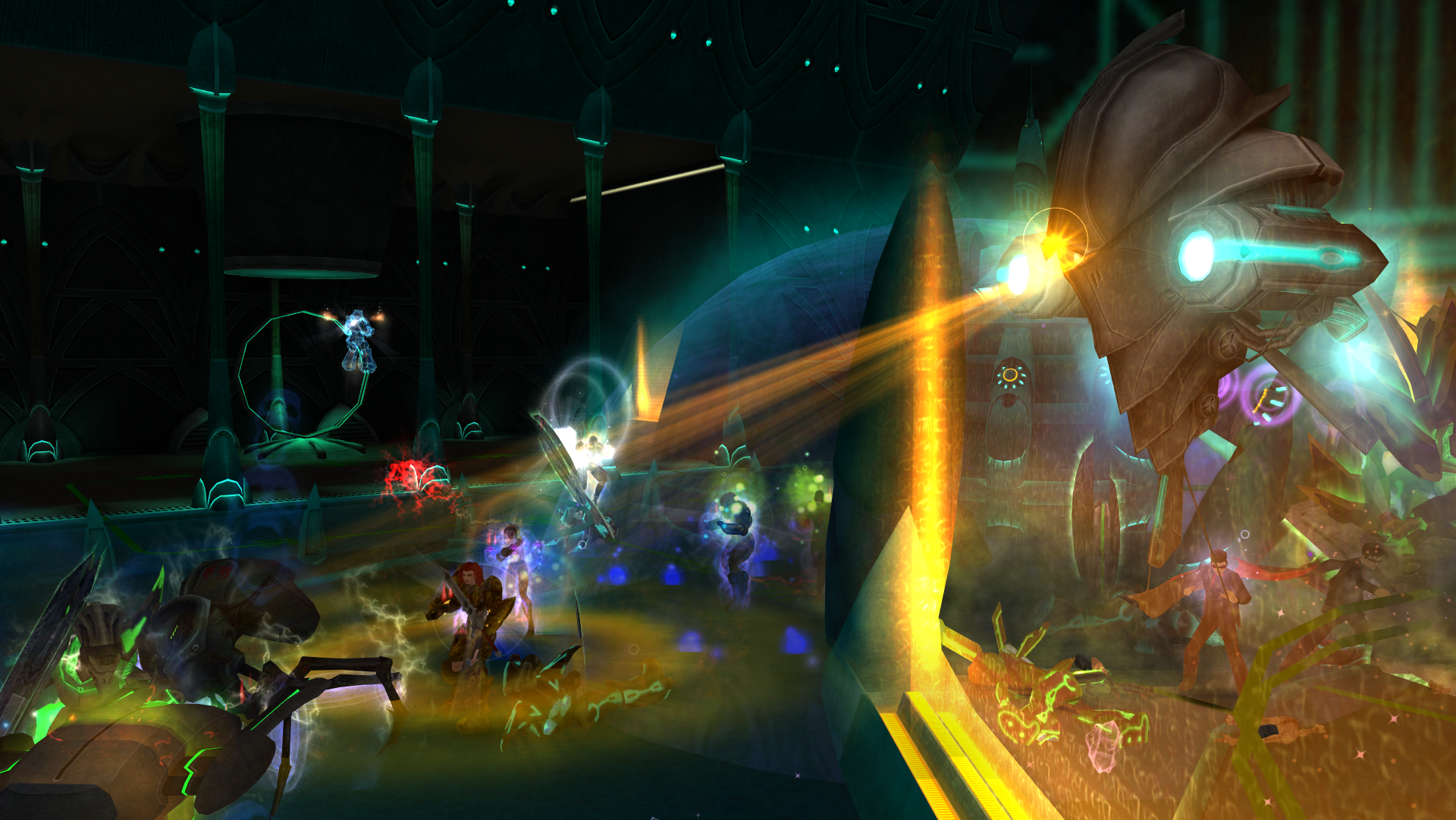
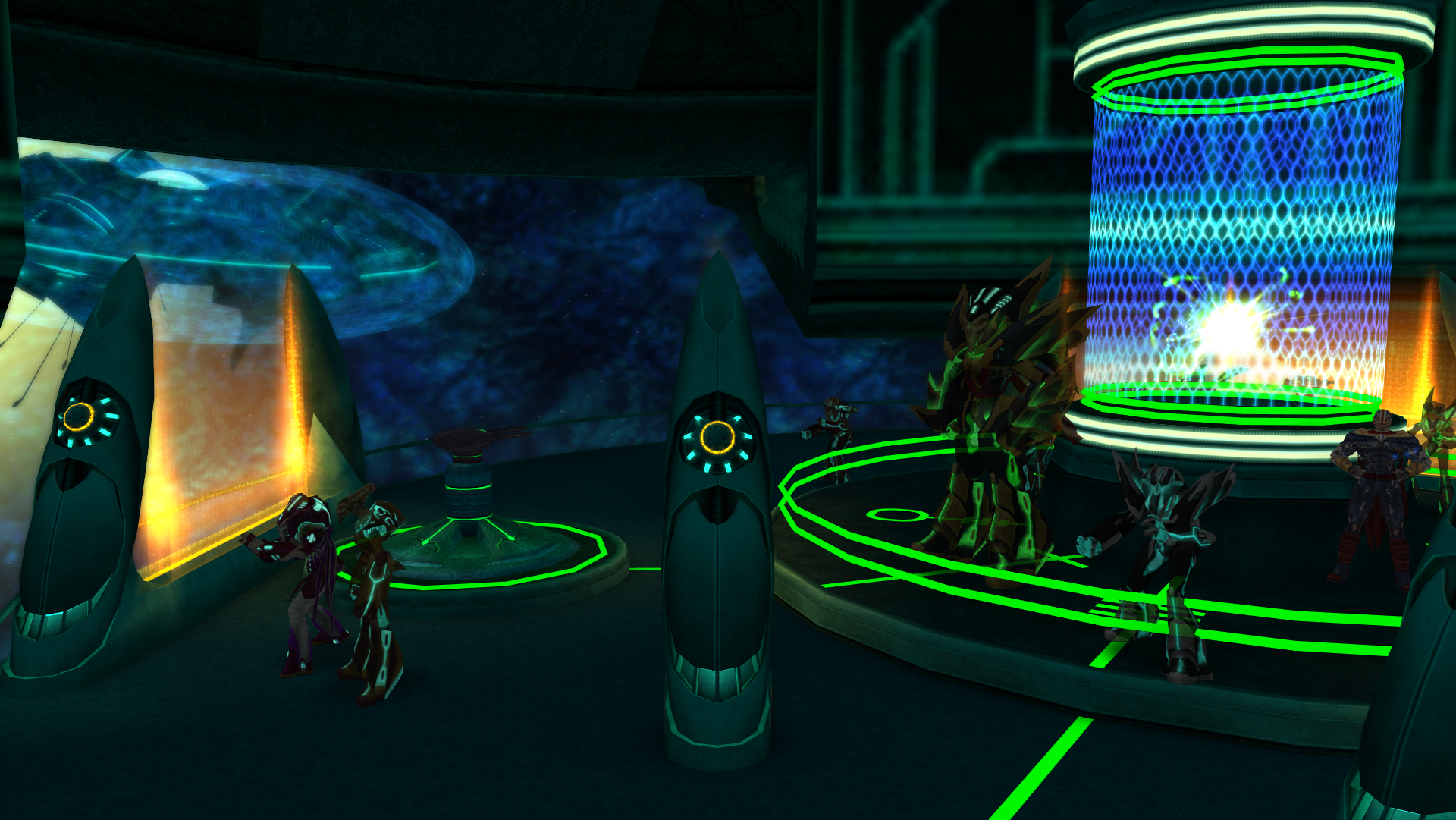
Today the Homecoming team is a volunteer operation made up of nearly 50 people. A leadership group, or City Council, makes decisions about policy and direction with input from various parts of the project. “We believe that this range of experience and expertise at the top helps us make informed decisions as a group,” the Homecoming team says.
One group of volunteers tackles player support and moderation across the project’s official Discord and forums. And another team, still recruiting and growing, handles development—loosely divided into traditional disciplines like programming, writing and art. “With a relatively small team of talented people, there’s naturally a lot of overlap and cross-discipline work going on,” the Homecoming team says. “But overall everyone works great together and there’s a lot of cohesion.” There are plans for new additions to the game, though they won’t be announced until they’re almost ready: “There’s no telling quite how long something might take, or if it’ll even be finished at all, due to the volunteer nature of the team.”
Meanwhile, NCSoft keeps a watchful eye over Homecoming to make sure its services, updates, and overall play experience “align with our desire to support the City of Heroes community with an enjoyable online gaming experience.” But the trust established in those initial conversations remains, and the partnership has been harmonious.
“We’ve had a really positive working relationship with NCSoft so far and don’t expect that to change going forward,” the Homecoming team says. “It’s not unlike a traditional developer-publisher relationship—just without the pressures of, y’know, hitting deadlines or needing to make any money. Which is quite a liberating set of circumstances, all things considered.”
Through it all the Homecoming team has stuck to the mission statement it laid out in May 2019—one which held true to City of Heroes’ values of freedom and self-expression. “Our prime directive is to keep the servers online and available to everyone,” wrote the volunteers at the time. “The key is in the name: we want this to feel like the home we all lost, and we want everybody to feel welcome.”





